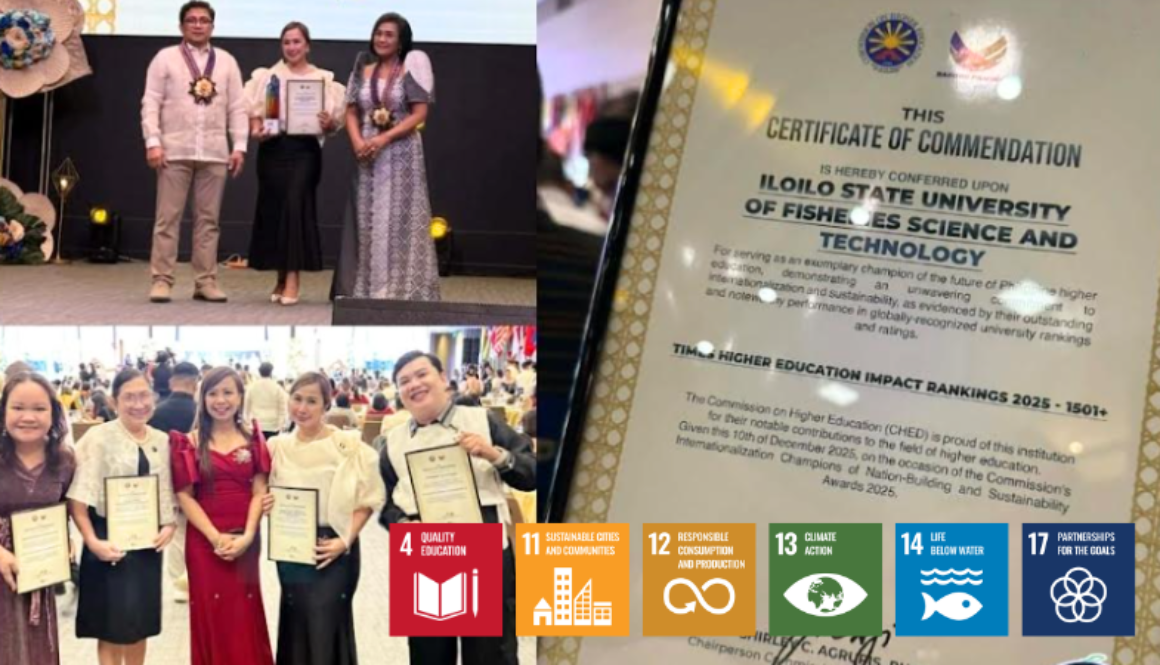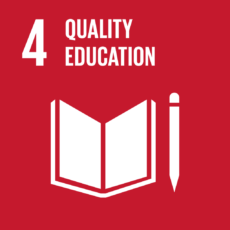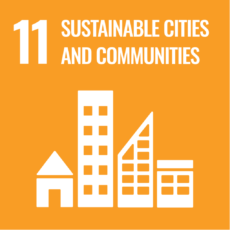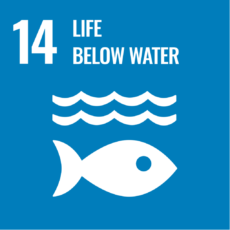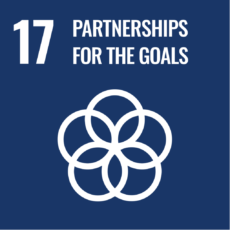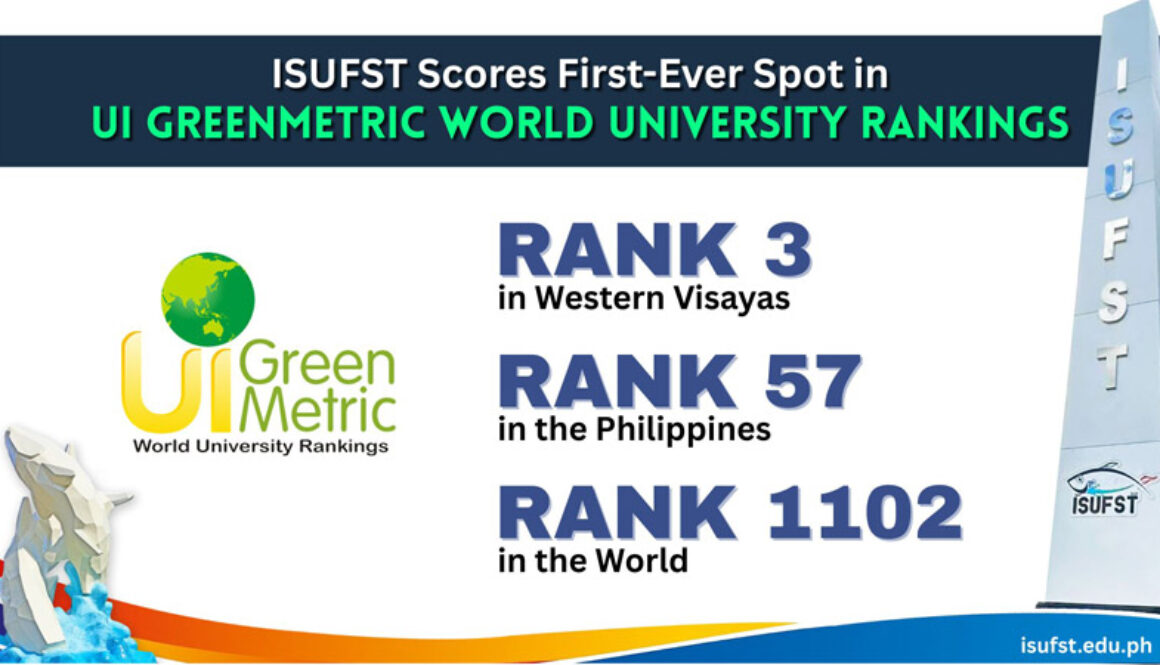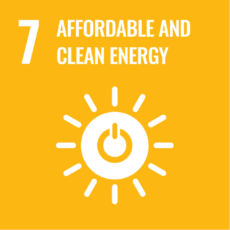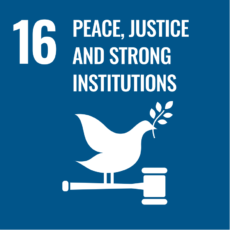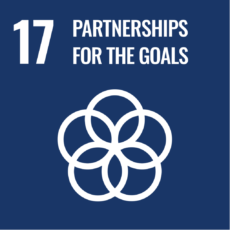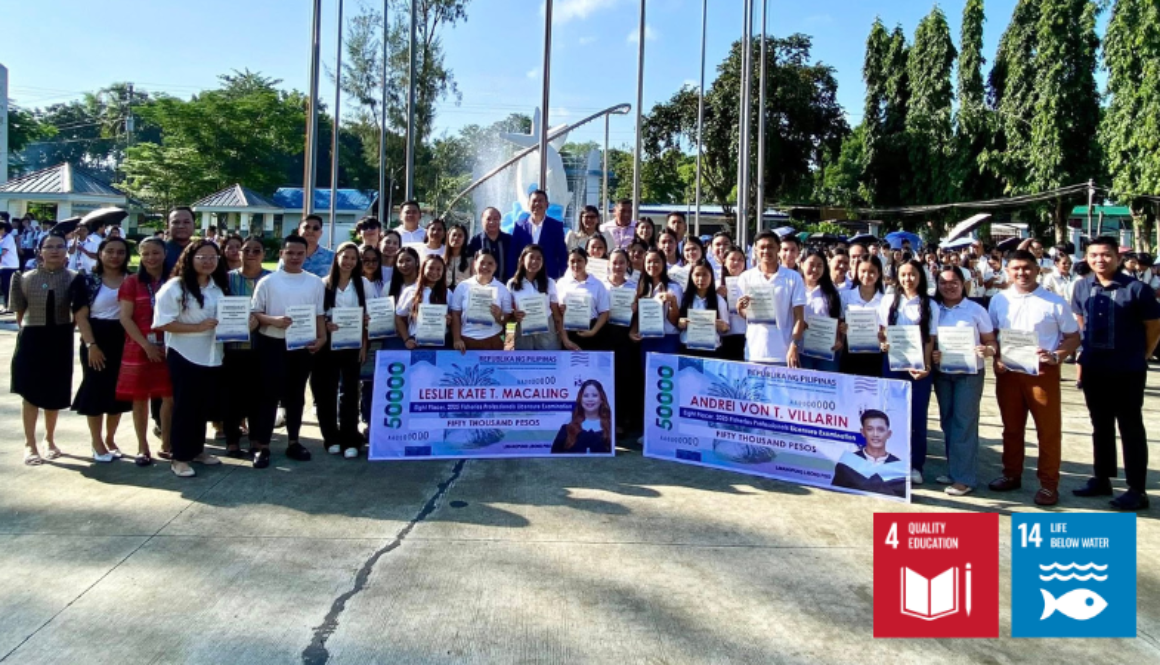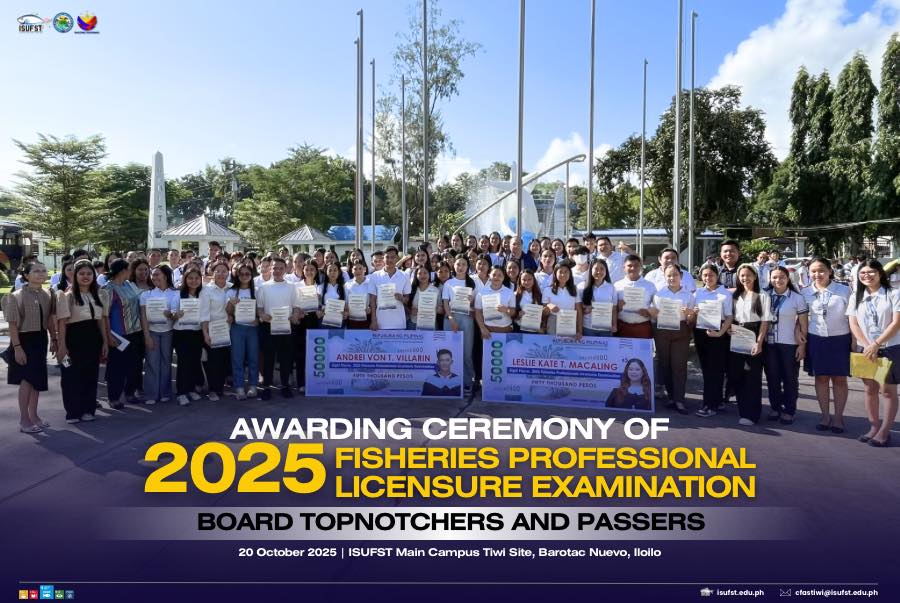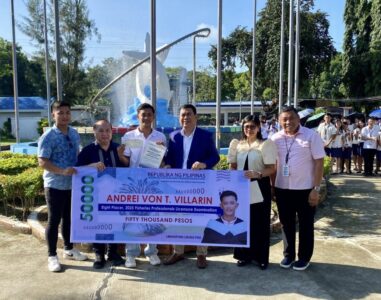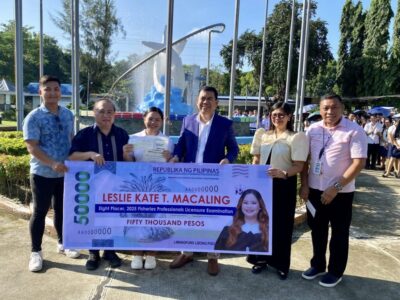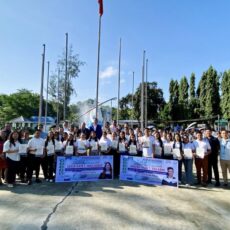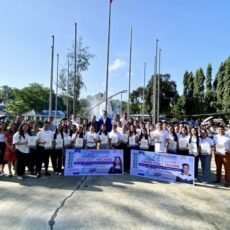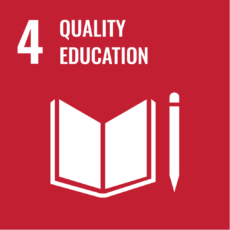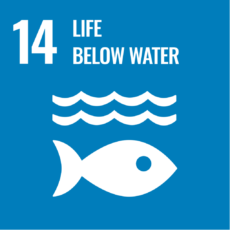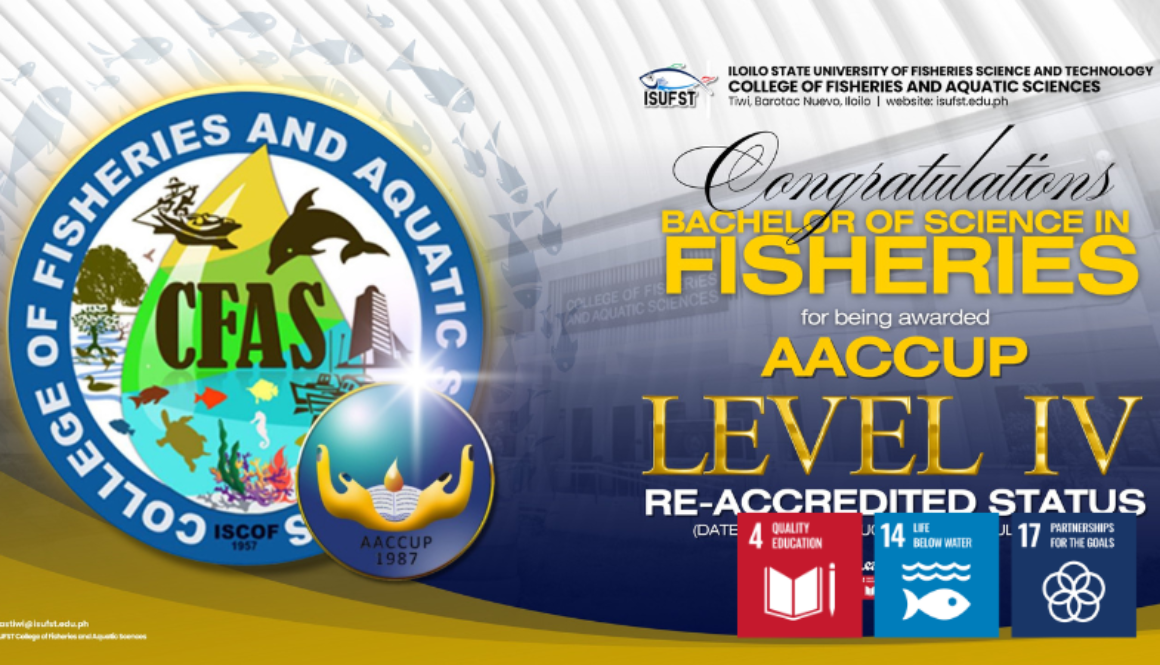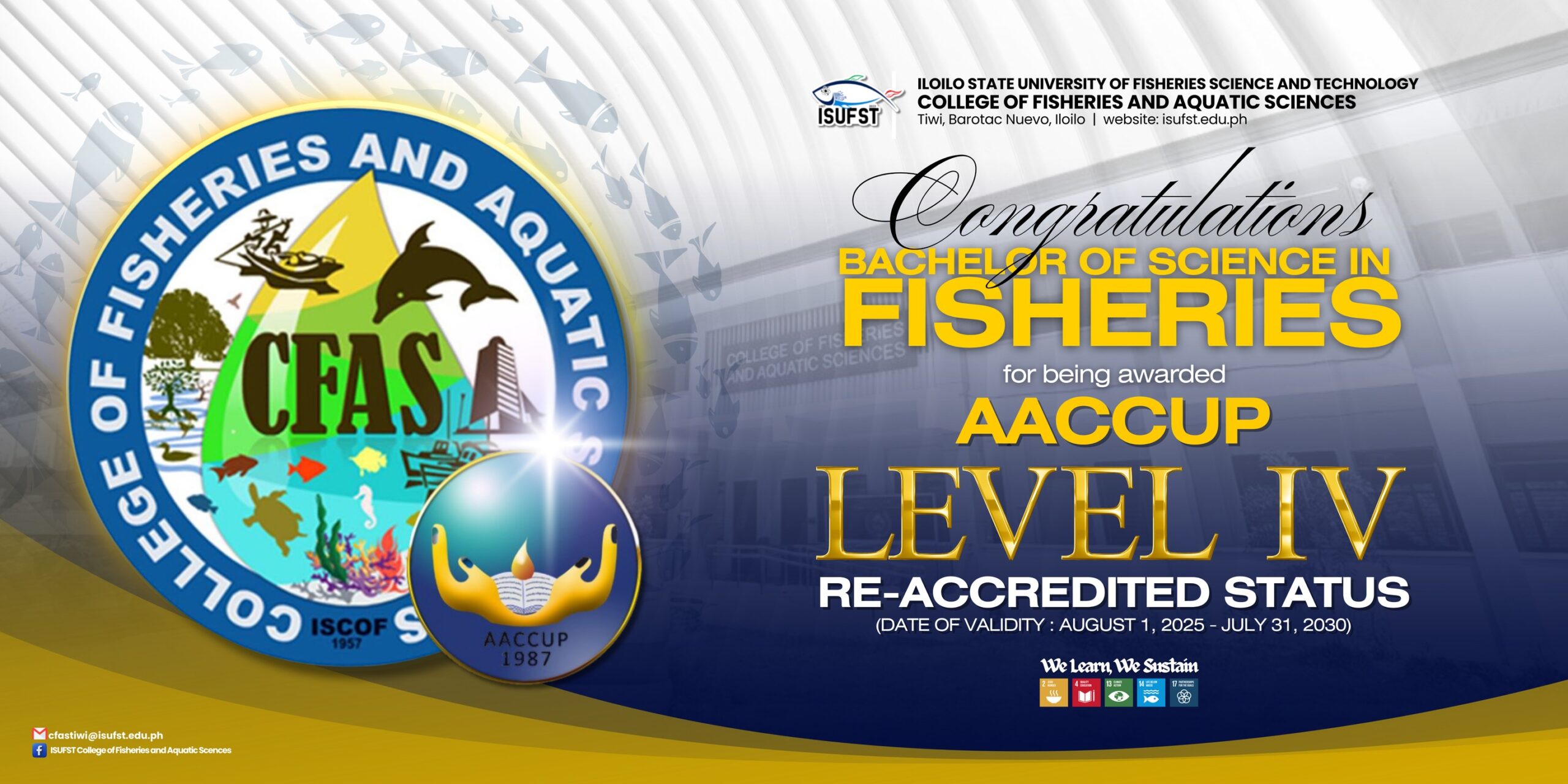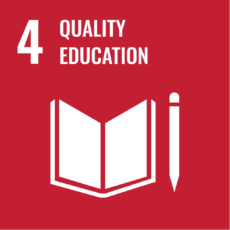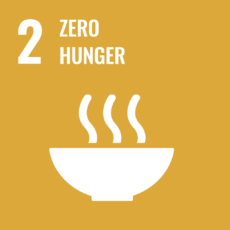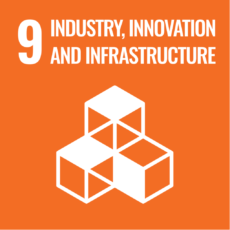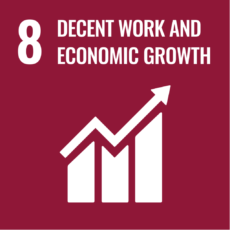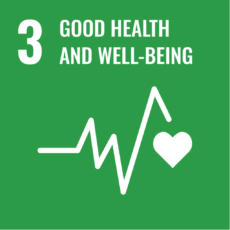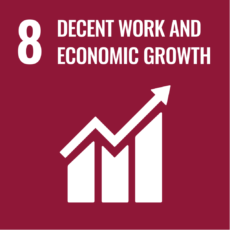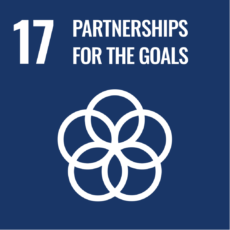ISUFST clinches its FIRST ICON AWARD
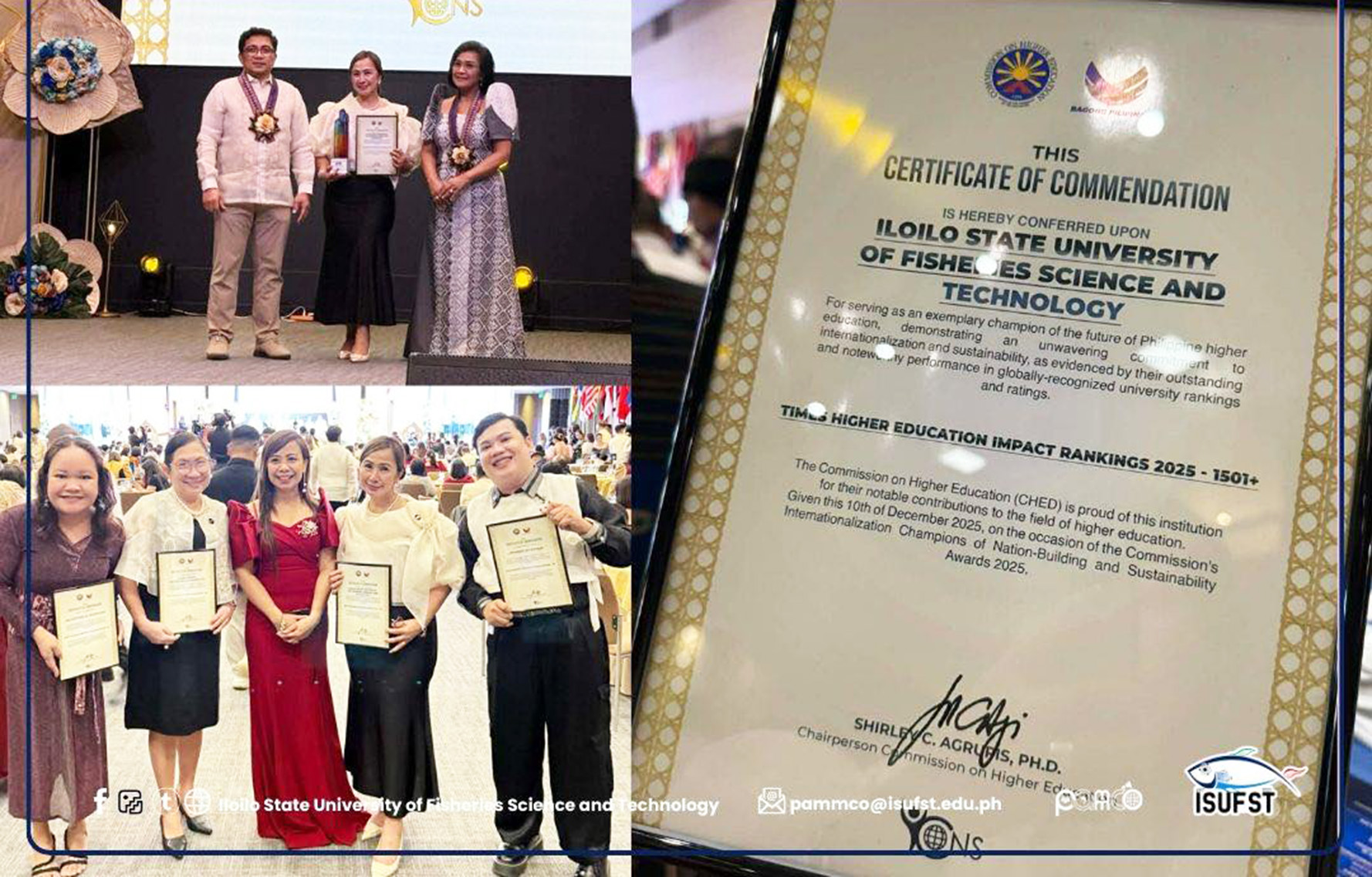
The Iloilo State University of Fisheries Science and Technology (ISUFST) marked a historic moment in its 68-year journey after receiving national distinction at the Commission on Higher Education’s Internationalization Champions of Nation-Building and Sustainability (ICONS) Awards on December 10, 2025, at the Philippine International Convention Center (PICC) in Pasay City.
CHED holds its annual ICONS Awards to celebrate Philippine Higher Education Institutions (HEIs) for their crucial role in championing the country’s higher education sector on the international stage. The ICONS Awards 2025 acknowledges Philippine HEIs that are beginning to show up in international ranking tables, celebrating not just the data but the stories behind them—the push for sustainability, the widening of ASEAN awareness, the growing spirit of global engagement. It is also a space where the visionaries and everyday workers behind these strides are honored.
For the first time, ISUFST joins the roster of ICONS awardees—a milestone that reflects the university’s rising presence beyond the shoreline and its growing impact on the country’s higher education landscape.
Representing the university at the ceremony was Dr. Jeanette G. Bayona, Director of the Office of International Affairs and Linkages, who carried the pride of the ISUFST community as she received the award. For her, the recognition felt deeply personal for a university built from the quiet perseverance of coastal communities.
“ISUFST may be a small university by national standards, but our dreams for our students have always been big,” Dr. Bayona said. “This award tells us that our efforts—to connect, to collaborate, and to open global doors for our learners—are finally being seen. It inspires us to do even more.”
This ICONS honor comes at a turning point for ISUFST, which has been quietly building its global connections through collaborations, faculty upskilling, and programs that bring the world closer to its coastal campus. As President Dr. Nordy D. Siason, Jr., CESO VI noted, the award captures the university’s spirit as much as its achievements.
“This is a milestone shaped by many hands—teachers who give more than what is required, students who dare to dream beyond our shores, and communities who believe in the promise of education,” Dr. Siason said. “For the first time in our history, ISUFST has been recognized on a national stage for internationalization. This is a victory we dedicate to the families and fisherfolk who built this university from the ground up.”
He added that the ICONS recognition strengthens ISUFST’s resolve to keep improving.
“We will continue creating programs and partnerships that honor our roots in fisheries while pushing us toward global relevance,” he said.
ISUFST also marked two more “firsts” this year—its inclusion in the UI GreenMetric and the 2024 THE Impact Rankings, both affirming its identity, especially in Life Below Water. For a university shaped by the sea and the families who depend on it, these recognitions feel like small waves turning into big tides. As ISUFST turns this new page, it carries with it a warm promise of a more connected and sustainable future for the next generation. (Julius Ruger Hermano | Herman Lagon | OIAL | PAMMCO)
#isufstisdafirst #isufst #isufstcommunity #pammcostoriesthatmatter

